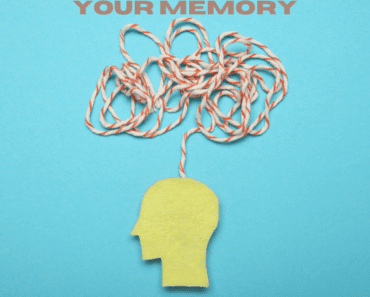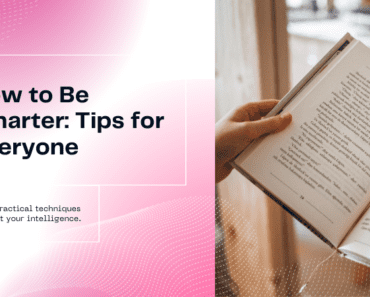Critical study is the process of watching, reading, or listening to ideas that are designed to expand your wisdom. It involves breaking down larger subjects into smaller parts and studying each part in-depth. Critical study can change a person’s identity and worldview, challenge the status quo, and force people to reconsider their assumptions. By using critical study in your life, you can make positive change happen on a personal and global scale.
5 Big Benefits Of Using Critical Study In Your Life

Why bother engaging in critical study?
1. It can help you question the status quo and challenge assumptions.
In a world that is constantly changing, it is more important than ever to be able to question the status quo and challenge assumptions.
Critical study can help you develop the skills and knowledge necessary to do just that.
By learning to analyze and interpret information, you will be better equipped to identify problems and find potential solutions.
In addition, critical study can help you develop a more nuanced understanding of the world around you. This deeper understanding can empower you to make positive changes in your community and the world at large.
2. It can help you develop a more nuanced and critical perspective.
A critical study of a subject matter can help you to develop a more subtle and critical perspective. By analyzing the different aspects of a topic, you can develop a deeper understanding of the complex issues at play.
In addition, critically examining a subject can help you to spot bias and errors in arguments. As a result, you will be better equipped to make your own informed opinions on controversial topics.
Furthermore, engaging in critical study can also help you to develop important skills such as close reading and reasoning.
Ultimately, by developing a more critical perspective, you will be able to approach complex issues with greater clarity and insight.
3. It can help you become more aware of your own biases and preconceptions.
As we go through life, we develop certain biases and preconceptions. These can be based on our personal experiences, our cultural background, or even our general outlook on life.
While these biases and preconceptions can sometimes be helpful, they can also distort our view of the world and lead us to make unfair judgments.
Critical study can help us become more aware of our own biases and preconceptions. By critically examining our beliefs and assumptions, we can learn to question them and see things from different perspectives.
As a result, we can become more open-minded and less likely to make snap judgments.
In addition, critical study can help us to understand the impact that our biases and preconceptions have on others. By becoming more aware of our own biases, we can learn to respect the beliefs of others and to build bridges rather than barriers between people.
4. It can help you learn to think for yourself and make your own decisions
You can’t always trust the information you find on the internet, and it’s important to be able to think for yourself and make your own decisions. That’s where critical study comes in.
When you critically analyze something, you’re looking at it carefully and objectively, rather than just accepting it at face value.
This skill is essential for students, who need to be able to evaluate their sources and make sure they’re using reliable information.
But it’s also useful in everyday life, whether you’re reading an article online or trying to figure out which candidate to vote for. Learning how to think critically will help you sort through the information you encounter and make the best decisions for yourself.
5. It can help you find answers for yourself
When you’re trying to figure something out, it can be helpful to talk to other people and get their opinions. But sometimes, the best way to find an answer is to look for it yourself.
That’s where critical study comes in. By critically examining a lesson, problem, or question, you can often find the answer yourself.
In addition, critical study can help you to see both sides of an issue and to understand different points of view. As a result, you’ll be better equipped to find solutions that work for everyone involved.
5 Tips To Create Positive Personal Change With Critical Study

1. Be open-minded.
One of the keys to critical study is maintaining an open mind. This can be difficult, especially when confronted with information that contradicts our deeply held beliefs. However, if we can approach critical study with an open mind, we may find that we are able to learn new things and create positive change.
For example, if we are studying a controversial topic, we may be able to see both sides of the issue more clearly and find common ground. We may also be able to identify our own biases and learn how to overcome them.
2. Don’t take things at face value.
In today’s society, it’s easy to get caught up in the day-to-day and take things at face value. However, if we take the time to critically study the world around us, we can begin to see the areas where change is needed.
For example, critical study can help us to see the ways that discrimination manifests in our everyday lives. It can also help us to understand how power structures influence the way we think and behave.
By not taking things at face value, we can start to see the world in a new light and create positive change.
3. Question your beliefs and assumptions.
Questioning your beliefs and assumptions is a necessary part of critical study. It allows you to examine your own thoughts and ideas and explore different perspectives.
When you question your beliefs, you open yourself up to new ways of thinking. You may find that your assumptions were inaccurate, or that there are other perspectives that you had not considered before.
This critical examination can help you to create positive change in your life, and to make better decisions in the future.
4. Develop your critical thinking skills.
Most people go through life without ever really learning how to think critically. This is a shame because critical thinking skills are essential for effecting positive change in the world.
Critical thinking allows you to see things from multiple perspectives, identify bias and false assumptions, and evaluate evidence in a systematic way. In short, it helps you to make better decisions.
By applying critical thinking skills to critical study, you can develop creative and effective solutions that make positive change possible.
5. Find answers for yourself.
Part of critical study is finding answers for yourself. This can be difficult, but it is often the best way to learn.
When you’re trying to figure something out, it can be tempting to just ask someone else for the answer. After all, why bother struggling with it on your own when you can just get the answer from someone who knows what they’re talking about? However, there are definite advantages to finding the answer for yourself.
For one thing, it forces you to really engage with the material and understand it deeply. And even if you don’t find the exact answer you were looking for, the process of trying to find the answers for yourself can help you to identify areas where you need to learn more.
What’s more, going through the process of finding an answer for yourself can help to build your confidence and make you more likely to take on other challenges in the future.
6. Journal often to reflect on what you’ve learned.
Journaling is a great way to reflect on what you’ve learned during critical study. It can help you to make connections between different ideas and to see the implications of what you’ve learned.
Writing in a journal also gives you a chance to track your progress over time. You can look back and see how far you’ve come and identify areas where you need to continue to work.
Journaling is a valuable tool for critical study and can help you to create positive change in your life.
7. Be patient with yourself – critical study takes time!
One of the most important things to remember when engaging in critical study is to be patient with yourself. It takes time to learn new things and to really understand complex or deep issues.
If you find yourself getting frustrated, take a break and come back to it later. The important thing is that you keep moving forward, even if it’s just a little bit at a time.





